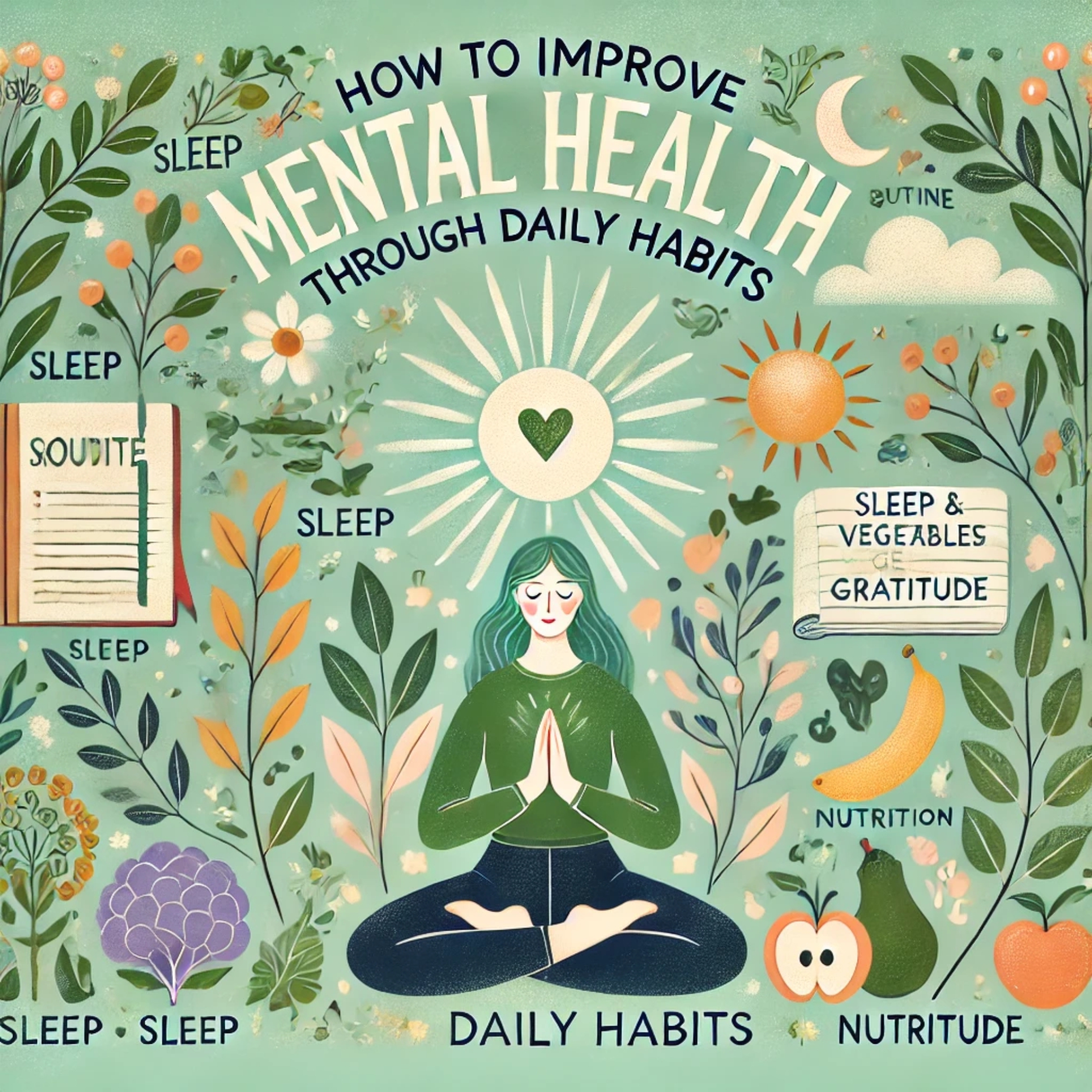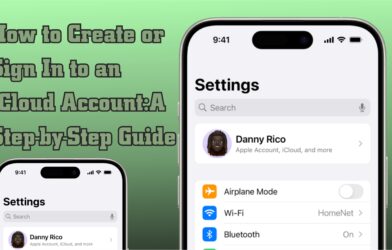Mental health is essential to our overall health and well-being. While professional help is important for serious mental illnesses, having good daily habits can actually improve your mental health and emotional resilience significantly.
This article provides helpful advice to allow you to establish good mental health through everyday daily habits.
The Importance of Daily Habits for Mental Health
- Routine and Stability: Having organized daily routines reduces anxiety and stress.
- Small Changes, Big Impact: Small steps lead to gradual improvements, establishing permanent changes.
- Empowerment: Taking charge of your daily routines boosts confidence and self-efficacy feelings.
Daily Habits to Promote Mental Well-being
1. Prioritize Quality Sleep
- Why It’s Important: Cognitive function, mood, and managing stress all rely on sleep.
How to Improve Sleep:
- Develop a consistent sleeping routine.
- Limit screen time an hour before bed.
- Create a relaxing bedtime routine, such as reading or meditating.
- Ensure your sleeping environment is quiet, dark, and comfortable.
2. Practice Gratitude
- Why It’s Important: Gratitude helps shift focus from negativity to positivity, improving overall outlook.
How to Practice:
- Keep a gratitude journal and write down 3 things you’re grateful for daily.
- Express gratitude to others through messages or verbal acknowledgments.
- Reflect on positive moments before sleeping.
3. Get Regular Exercise
- Why It’s Important: Exercise releases endorphins, which are natural mood lifters.
How to Add Movement:
- Aim for 30 minutes of moderate exercise most days, such as walking, yoga, or dancing.
- Get up and move with regular breaks from sitting.
- Engage in activities you like so that exercising will not be a chore.
4. Eat a Balanced Diet
- Why It’s Important: Eating well fuels brain function and energy.
How to Eat for Mental Health:
- Consume whole foods, such as fruits, vegetables, lean protein, and whole grains.
- Avoid added sugar and processed foods.
- Stay hydrated by drinking plenty of water.
- Supplement with omega-3 fatty acids (found in fish, flaxseeds, and walnuts) to support brain fuel.
5. Practice Mindfulness and Meditation
- Why It’s Important: Mindfulness keeps you present, reducing stress and anxiety.
How to Start:
- Practice 5-10 minutes of mindfulness per day, e.g., breathing or guided meditation.
- Use apps like Headspace or Calm.
- Apply mindful behavior to daily activities, e.g., eating or walking.
6. Set Realistic Goals
- Why It’s Important: Achieving small goals builds confidence and a sense of accomplishment.
How to Set Goals:
- Break large tasks into smaller steps.
- Focus on progress, not perfection.
- Celebrate small wins along the way.
7. Set Time Limits for Screens and Social Media
- Why It’s Important: Excessive screen time leads to feelings of comparison, isolation, and overexcitement.
How to Keep Technology Use Balanced:
- Restrict daily screen usage.
- Employ social media sensibly by visiting uplifting and inspirational pages.
- Schedule no-tech moments throughout your day, especially during mornings and evenings.
8. Develop Relationships with People
- Why It’s Important: Emotional support is gained by getting connected to other people and this reduces feelings of loneliness.
How to Make Relationships:
- Make regular check-ins with friends or relatives.
- Participate in community groups or shared activities.
- Volunteer for a cause you believe in to connect with others.
9. Practice Self-Compassion
- Why It’s Important: Treating yourself with kindness reduces self-criticism and makes you more resilient.
How to Be Self-Compassionate:
- Talk to yourself the way you would to a close friend.
- Acknowledge that it is acceptable to have poor days and make errors.
- Focus on your strengths and achievements.
10. Learn Something New
- Why It’s Important: Engaging in new activities stimulates the brain and boosts self-esteem.
How to Start:
- Take up a new hobby, such as painting, cooking, or learning a language.
- Enroll in online courses to explore areas of interest.
- Challenge yourself with puzzles or games to keep your mind active.
How to Stay Consistent
- Start Small: Introduce one or two habits at a time to avoid feeling overwhelmed.
- Track Progress: Have a habit tracker or journal where you can write down your consistency and progress.
- Be Flexible: Adjust your habits to suit your needs and lifestyle.
- Seek Support: Inform a friend of your intentions or look for an inspirational community to guide you along.
When to Seek Professional Help
Professional help is required even if your daily routines significantly improve mental well-being, particularly if you are experiencing:
- Persistent sadness, hopelessness, or anxiety.
- Challenges in everyday life.
- Thoughts of self-harm or harming others.
- Trauma or unresolved emotional distress.
Consult a licensed therapist, counselor, or support group for guidance and support.
Mental health development is a gradual process that is time-consuming and demanding.
Adopting these routines as part of your daily living, you are likely to be emotionally stronger, more resilient, and build a life of higher meaning.
You should start from a small place, be constant, and keep in mind that every good move counts.








